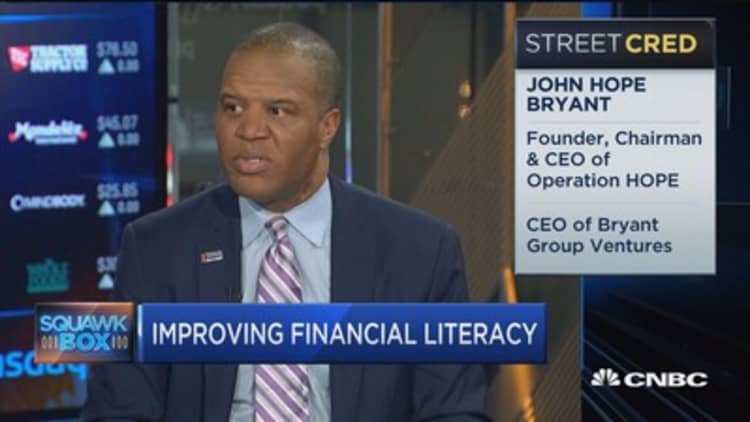If you're one of the estimated 43 million Americans with a retirement or brokerage account, the Securities and Exchange Commission wants to hear from you.
The federal agency on Wednesday proposed a regulatory package that puts a bull's eye on conflicted investment advice given to retail investors by brokers. The SEC is seeking input from the public on its proposed rules. (Those can be found here.)
The three-part proposal, which comes with a longer-than-usual public comment period of 90 days, aims to mitigate conflicts of interest as well as investor confusion over the standards that different financial professionals are held to.
"The SEC always wants to hear from people when it proposes rules, whether individuals, industry groups or firms. But this is of particular importance," said Jim Lundy, a partner with law firm Drinker Biddle in Chicago.
At issue are the different legal obligations that brokers and registered investment advisors have when they give investment advice.
The latter must meet a fiduciary standard, which means they must put their clients' interests ahead of their own. Brokers, on the other hand, currently must meet a less-stringent suitability standard that requires them only to ensure a recommended investment is appropriate.
"The commissioners are trying to address those different standards," Lundy said.

However, he points out that the SEC's proposals do not create a uniform standard that both brokers and investment advisors would have to adhere to. Instead, it would add requirements to the suitability standard that fall short of the fiduciary mandate imposed on investment advisors.
Broadly, these are the SEC's proposals:
1. "Regulation Best Interest" rule: When making an investment recommendation, brokers would be required to act in the best interest of the client. This would mean not putting their own interest — financial or otherwise — ahead of the investor.
However, as long as the brokerage meets certain requirements — including making disclosures about conflicts and working to mitigate or eliminate them — the best-interest mandate would be met.
2. Relationship-summary form: This would be a standardized disclosure form applying to both brokers and investment advisors. It would include services offered, fees and conflicts of interest.
Notably, it would restrict certain brokers from using the term "adviser" or "advisor." Use of the term can mislead investors into thinking the professional (or the firm) is a registered investment advisor and therefore subject to a fiduciary standard.
This part of the proposal comes with a section specifically geared toward retail investors that solicits their input on these relationship-summary forms.
3. Investment advisor interpretation: Basically, this would reaffirm and clarify certain aspects of the fiduciary duty that registered investment advisors have to their clients.
The SEC's move comes about a month after the Labor Department said it was backing off enforcement of its existing so-called fiduciary rule due to a court ruling.
In that case, a federal appeals court determined the agency had overstepped its authority by creating the rule, parts of which took effect last year. That rule requires any financial advisor providing investment advice for retirement accounts to meet a fiduciary standard.
However, the court's ruling and the Labor Department's lack of enforcement essentially render it ineffective for now.
Investors can help ... by clearly communicating to the commission what they think a best-interest standard should mean.Barbara RoperDirector of investor protection for the Consumer Federation of America
Meanwhile, Barbara Roper, director of investor protection for the Consumer Federation of America, said the biggest problem with the SEC's new set of floated changes is that "best interest" is not defined, despite it being the name of the proposed rule targeting brokers.
"It doesn't even clearly require brokers to compare available investment options, let alone recommend the available option that is the best fit for the investor," Roper said. "Absent that requirement, it would be confusing, if not misleading, to call this a best-interest standard."
She added, "Investors can help fix that problem by clearly communicating to the commission what they think a best-interest standard should mean."
More from Your Money, Your Future:
This is how Americans are feeling about the new tax law
New-car shoppers: Brace yourselves for higher costs
Congrats, America. You've finally earned enough this year to cover your 2018 tax bill






